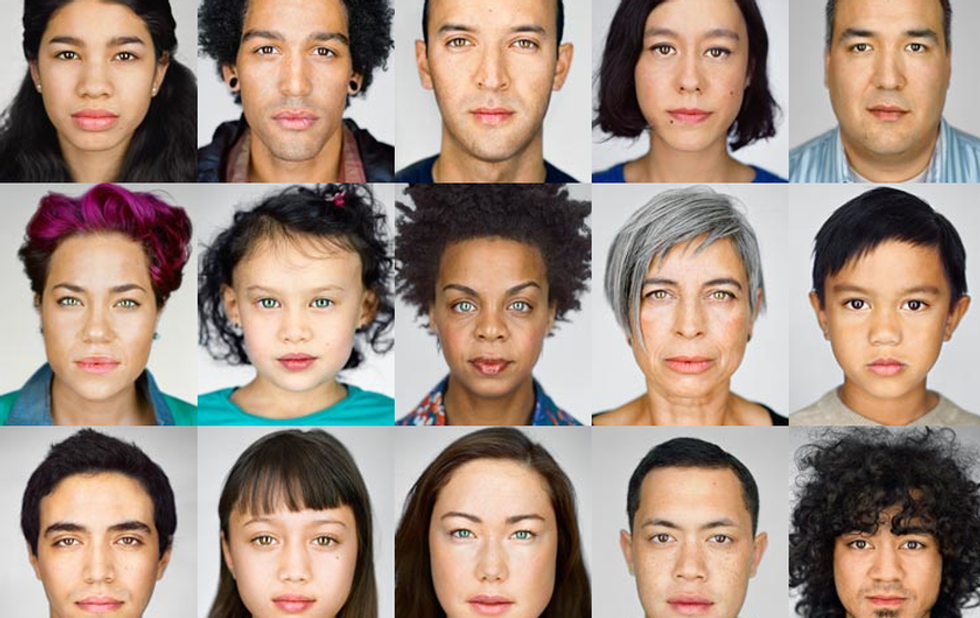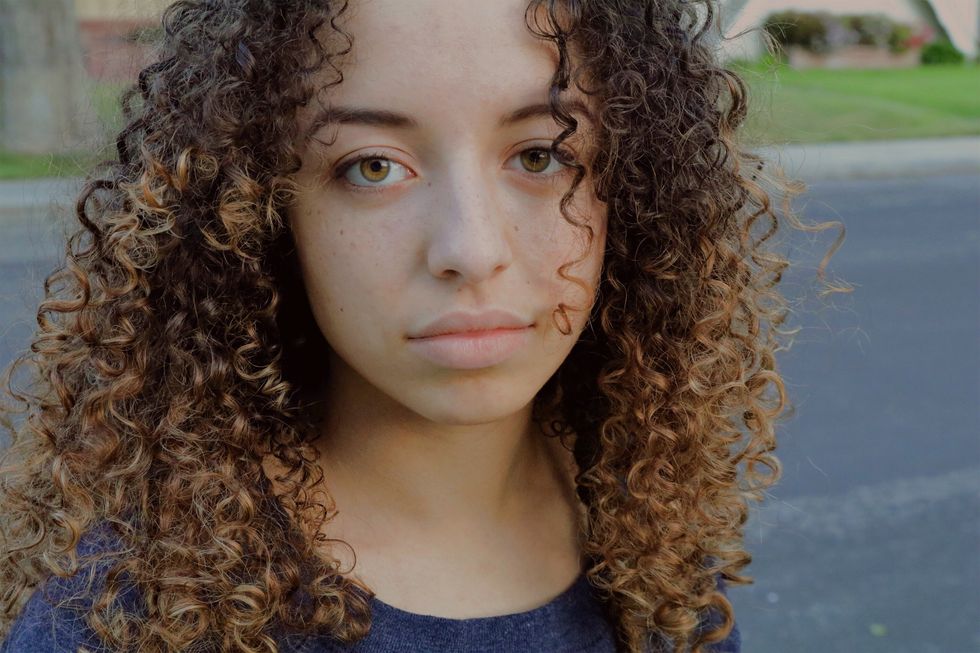I'm multiracial and I've never met anyone who looked like me. With Salvadoran, Spanish, French, German and African heritage, I definitely look mixed. My thick curly hair, my green eyes and lighter skin with yellow undertones stands out with freckles sprinkled across my nose. Growing up, I never fit into one exclusive group, nor did I feel I belonged in one.
Despite what we may tell ourselves here in the United States, racism and segregation still exist and it's often through our own oblivious everyday actions that it is perpetuated. Our history is heavy with the reminder of inequality so while some tend to put a major focus on striving for the opposite, there are still many people who find themselves only comfortable with those who look like them.
I can't complain. Growing up in Northern California has given me the ultimate confidence to define myself. San Francisco is one of the most diverse cities in the world! I was raised American, learning Spanish from my father, Arabic and Japanese from my friends, eating food from every country under the sun and having many mixed race friends. Nevertheless, I still heard the comments. I was consistently asked, "what are you?" as if I were not like them. After telling them, many proceed to call me "exotic" and "unique". Although often meant as a compliment, eight-year-old me was confused.
Finding My Place
As a teenager, I noticed where the divides lay. Race and culture were confusing and frustrating. I didn't speak Spanish well enough to chat with the Latina girls at school. I couldn't relate to the white girls and everything they had grown up around. When I had dreadlocks in high school, black girls stared and whispered, throwing me dirty looks. I envied how others could so easily describe their culture and seemed to know exactly where they belonged.
Social media has also been a huge contributor to race identity. Before the widespread appropriation and cultural/identity politics all over the media, I didn't see myself as any different from people I met and involved in my life. We like to categorize ourselves in order to feel like we belong, but the idea that these definitions define us, is false.
Now that I live in Philadelphia, I see even harsher racial lines that run deep into the history of the U.S., but I have made the conscious decision to see myself differently. I can't keep trying to squeeze into a label. I spent a lot of time on my own; I defined my own style. I found the things I was truly passionate about and bounced around from group to group. I still consider myself white, black and hispanic and I am proud of where my roots lie, but I refuse to limit myself to behaving a certain way because of it.
The Future

They say that with the rate of globalization, most people will be of mixed race fifty years from now. Maybe one day, centuries from now, this idea of race will no longer exist and we'll learn to accept each other as people based on our values. I am truly excited for future generations to experience this. I want to be judged by my character, by my kindness and my honesty rather than how I appear to you on the street. I want to be able to define myself, with the help of others around me- people I connect with based on shared experiences, hopes, dreams and without the social construct of race. I am grateful to have been granted such a perspective growing up and I hope to share it in whatever I do.
Be proud of where you come from, respect it. But more importantly, be proud of who you are and intend to be.

















